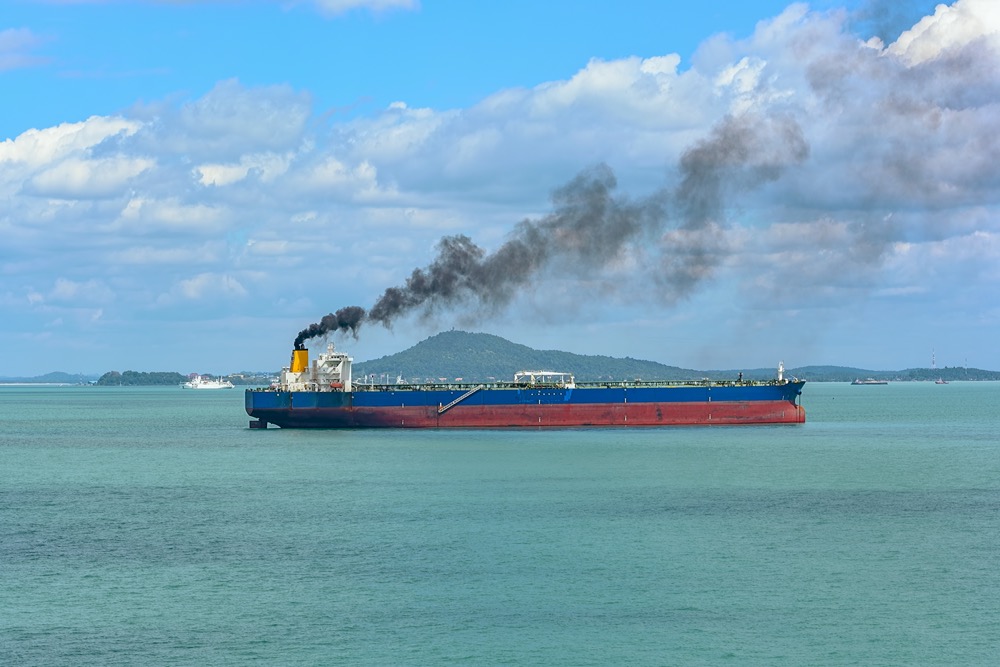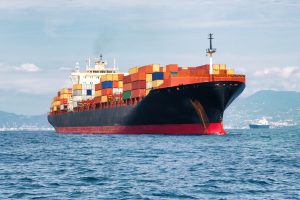The maritime industry must take immediate collective action on an unprecedented scale to bring the decarbonization of the industry closer to the Paris 1.5°C trajectory, states the Maritime Decarbonization Strategy, a new report published today by the Mærsk Mc-Kinney Møller Center for Zero Carbon Shipping.
The report urges companies, governments, and individuals across the globe to collectively fast-track decarbonization this decade and outlines key actions that lie ahead regardless of what the end game will be.
Key takeaways include:
- International and domestic shipping uses approximately 12.6 EJ of energy each year, corresponding to around 300 million tonnes of fossil fuels. To align with the Paris 1.5°C trajectory, the industry must limit its fossil fuel consumption of the global fleet to approximately 6 EJ by 2030.
- Improving onboard energy efficiency by just 8% – or 1% per year until 2030 – could save ~1 EJ of energy, equivalent to 24 million tonnes of fuel oil and 0.1 GtCO2eq of greenhouse gas emissions. To leverage this opportunity, shipowners and operators must take immediate action to increase energy efficiency in operation as well as by installing energy efficiency technologies in existing or new vessels.
- A global transition requires global targets, standards and regulation. Members of IMO need to reach consensus on ambitious absolute emission targets to reduce global GHG emissions from a well-to-wake perspective. This should be complemented by shared international rules and standards supporting alternative fuels and decarbonization technologies.
- Acknowledging that decarbonization is coming, there is an opportunity now for companies to proactively strategize and prepare the company for the future. Shipowners and operators can set ambitious decarbonization targets, exercise transparency, and use clear ESG reporting to exercise climate leadership, providing tangible benefits and mitigating risks for the company.
- Regional, national, and local policymakers and authorities must develop roadmaps encouraging dedicated investments in green energy and fuel infrastructure for the maritime industry transition and engineering capacity to build these facilities
- Industry ‘First Movers’ are initiating zero carbon shipping even before global standards and regulation are in place. Companies and countries are demonstrating individual leadership but are also uniting across sectors and geographies in green corridor projects. More first movers’ initiatives need to be established in public-private partnerships to share costs, benefits, and risks.
- Finally, the report creates an overview of what needs to be done to enable the alternative marine fuel pathways focusing on what can be done today regardless of what the future fuel mix will end up looking like.
Rapidly growing commitment
Recent action across the maritime industry demonstrates that the sector already has the most important component of any decarbonization strategy – a willingness to act. But current actions are not enough, and the industry must turn to take even more drastic means to bend the rising emissions curve. This will require overcoming technical, commercial, and regulatory barriers as well as new levels of collaboration. It is a huge, complex challenge, but it is not impossible if the maritime ecosystem come together and act.
“We know the challenges, the obstacles, the uncertainties, and the fears. To some it may seem like a lot, and perhaps even overwhelming, but the only way to progress is by facing the challenges head on said Bo Cerup Simonsen, CEO of the Mærsk Mc-Kinney Møller Center for Zero Carbon Shipping. “It is absolutely doable and we are seeing rapidly growing commitment and real climate action from governments, companies, and individuals across the globe. The United States has stepped up with the Inflation Reduction Act, EU is taking bold and concrete steps to regulate shipping with its ETS and fuel standards, and the IMO is reviewing its initial GHG strategy in July 2023. At the same time, we see the maritime private sector – energy companies, shipping companies, cargo owners – starting to mobilize and demonstrate climate leadership.” (Dreamstime photo)








